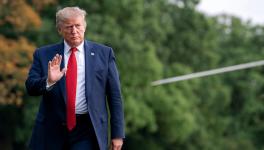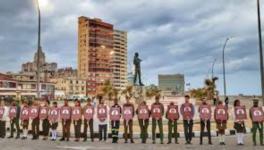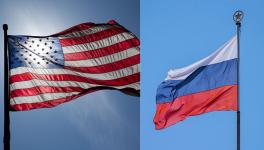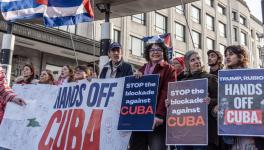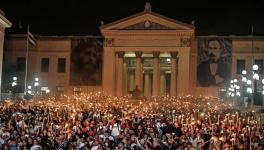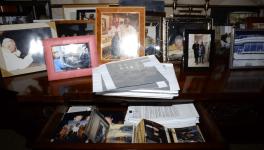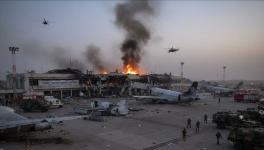Trump Wants to Outsource its Military Occupation in Syria to an Arab Army
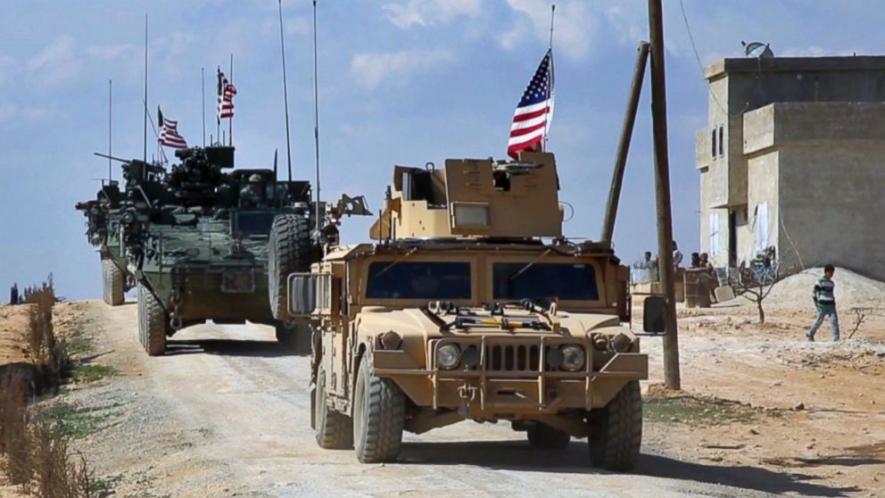
The president of theThe United States Donald Trump seems to be in love with the idea of outsourcing the ‘mess’ that the US creates wants to create around the world – - from Mexican border wall to the Syrian conflict. According to a recent report, the Trump administration regime is planning to replace its force in Syria with an ‘Arab force’. The reports came just a few days after Trump announced: “Mission Accomplished”, post the joint France-UK-US airstrike against Syrian research centres and airfield on April 14. The last time a US President had used the term – ‘mission accomplished’, the country was sucked into the havoc it had created after invading Iraq and toppling the government of Saddam Hussein in 2003. Even after more than a decade, the US forces are still grappling with the conflict, and around 4,60,000 civilians have been killed since the beginning of the war in Iraq.
Similar to his idea of getting the wall project funded with the Mexican money, President Trump wants Saudi Arabia, UAE and Qatar to pay for the new force. "Saudi Arabia, Qatar and the U.A.E. have all been approached with respect to financial support and more broadly to contribute,” an administration official said. Egypt, Bahrain, Jordan, Kuwait, have also been approached by the US administration to build the Arab army.
Saudi Arabia's foreign minister, Adel bin Ahmed Al-Jubeir, said Tuesday that Saudi Arabia is engaged in talks with the US and would consider sending forces to Syria along with other Arab countries to form the new army.
Currently, the US has around 2,000-strong force on ground in the northeastern part of Syria. The force is mostly deployed for training Syrian armed opposition forces that aim at overthrowing the Syrian president Bashar Assad. The US is also involved in supporting Kurdish forces in their fight against Islamic State and al-Nusra forces. The attempt by the US to create Kurdish border forces in January this year led to Turkish invasion and capture of Afrin area in Syria. The Trump administration later backed off from the idea, and also refused to back Kurds against the Turkey’s offensive.
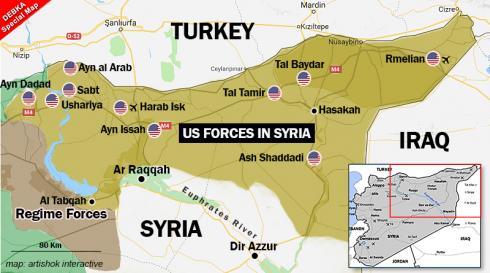
(Map: US Military Deployment in Syria as of January 11, 2018)
The military and intelligence forces of the United Kingdom, France, Saudi Arabia, UAE and Israel are covertly active in Syrian territories, backing the armed opposition forces. Their involvement ranges from active military involvement to training and intelligence gathering. Saudi Arabia and UAE – backed by the US and the UK – are active in providing weapons and ammunitions to the opposition groups like the Free Syrian Army.
A recent study by London-based Centre for Armament Research (CAR) said that the 'unauthorised transfer' of the weapons—supplied by the US and Saudi Arabia—by Syrian opposition forces boosted the fighting capacity of the Islamic States.
Israel, attempting to curtain increasing Iranian influence in the West Asian region, asserted that it “will not accept any limitations to its operations” in the Syrian airspace. In recent months, Israeli military activities in the Syrian airspace – one of the most hostile in the world – have increased considerably. On February 10 this year, an Israeli F-16 was shot down by the Syrian Air Defense, after targeting Syrian T4 airbase. Another missile attack by Israel was launched on April 9, again on T4 airbase, just a few days before the western coalition's pre-dawn missile strike. According to the reports, Israel provided intelligence support for the coalition airstrike.
The western coalition, on Saturday, justified the launch of 100+ missiles on Syria, saying that research centres were chemical weapon factories. One of the centres – Barzah Scientific Research Facility, was targeted despite the international chemical weapon watchdog concluding that there were no chemical or biological weapons being developed, tested, or produced at the site. In March, the Organisation for the Prohibition of Chemical Weapons (OPCW) noted: “Analysis of samples taken during the inspections did not indicate the presence of scheduled chemicals in the samples, and the inspection team did not observe any activities inconsistent with obligations under the Convention during the second round of inspections.”
OPCW Ready to Be Deployed in Douma
After the initial glitch over the security arrangement in Douma for the Fact-Finding Mission (FFM) of OPCW, the nine-member team is ready to be deployed. A team from the United Nations Department of Safety and Security (UNDSS) is in Douma to access the security situation ahead of deployment of the nine-member OPCW team on ground.
Just few hours before the OPCW team arrived in Damascus on Saturday to verify the reports of chemical attack, the western coalition launched the massive missile strike.
Military observers argue that the attack on Barzah and Him Shinshar facilities was a smokescreen for targeting the Syrian air bases, in an attempt to disable the country’s air support capabilities.
Get the latest reports & analysis with people's perspective on Protests, movements & deep analytical videos, discussions of the current affairs in your Telegram app. Subscribe to NewsClick's Telegram channel & get Real-Time updates on stories, as they get published on our website.









